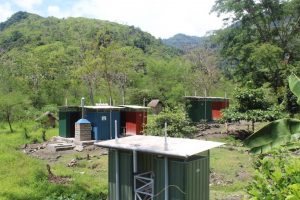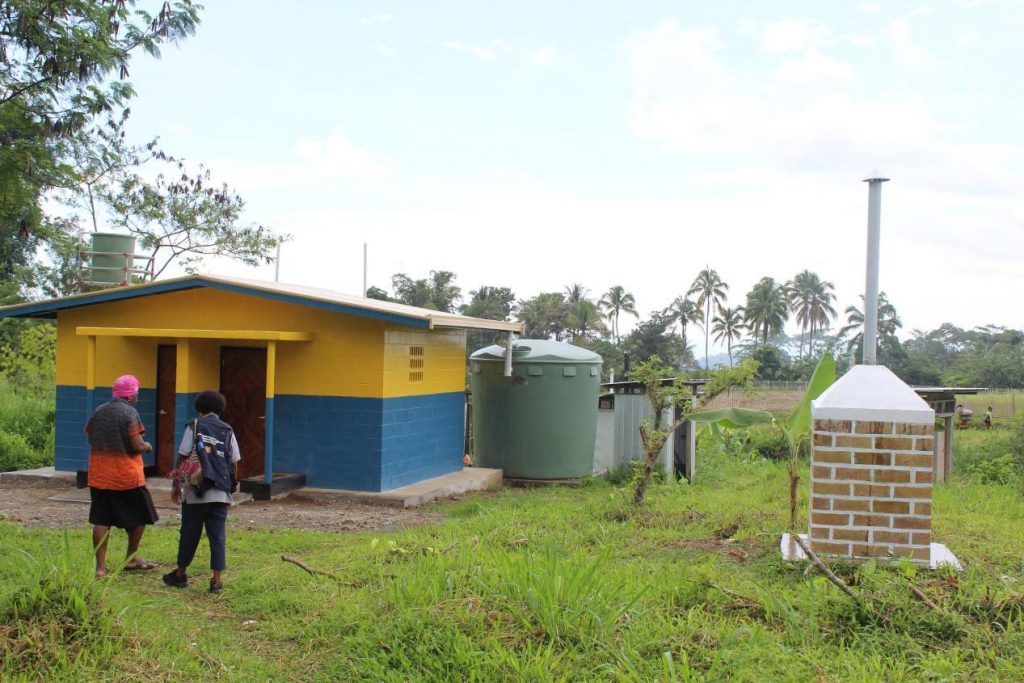Ongoing Menstrual health and hygiene promotion and education is vital for everyone to break through barriers in cultural taboos, that have negative impact on women and girls well-being.
UNICEF WASH Officer Issabella Warre said lack of information and education on menstrual hygiene is affecting many women and most of them need to learn how top manage this especially in rural areas and more awareness is needed.
“Health care facilities and schools play a vital role carrying out awareness on menstrual hygiene so there is enough exposure so both female and male students in school can learn including men and women who are at the health care facilities”, she said.
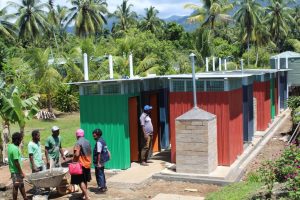
The European Union-Unicef Water Sanitation and Hygiene (WASH) project continues to promote and address this in 200 schools and 36 health care facilities in four pilot project districts in Nawaeb in Morobe, Goroka in Eastern Highlands Province, Hagen Central in Western Highlands Province and Central Bougainville in Autonomous Region of Bougainville.
This is under its Wash in School (WinS) and Wash in health care facilities component of the European Union and UNICEF funded WASH Klinpela Komuniti Project (KKP).
Ms Warre said the EU-UNICEF WASH project with partners is helping the 200 schools in providing separate toilets with changing rooms for female students including incinerators,distribution of re-usable sanitary pads including soaps and buckets.
This is because, as per the national WASH Management Information System (MIS),school census data 2018/2019 taken from the Education Management Information System, 69% out of 8008 schools nationwide lacked toilets or have unimproved toilets.
Also 83% of schools either had no hand-washing facilities or had hand-washing facilities with no water or soap.
“for the 36 health care facilities, the project is providing Information, Education and Communication materials for the health workers to provide awareness on menstruation and other health related issues”, Ms Warre said.
This is because, of the 137 health care facilities registered on the National WASH MIS, 94% either had no toilets or available toilets were not usable.
Sharing similar sentiments,World Vision WASH Manager Everlyn Mikasimo said under the EU-UNICEF WASH project, women and girls in schools and communities were provided low cost sanitary pads such as reusable pads considering remoteness of the communities and schools with less income opportunities and accessibility.
“Key Hygiene Messages have also been delivered on what to do during menstruation to maintain their hygiene and also providing user friendly menstrual Hygiene facilities”, said Ms Mikasimo.
She said poor menstrual hygiene caused by lack of education on menstruation, stigma, limited access to hygienic menstrual products and poor sanitation, are some of the challenges that undermines educational opportunities, health and overall social status of women and girls in Papua New Guinea.
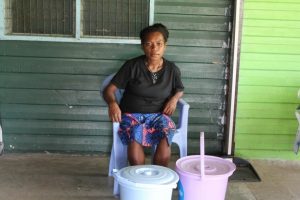
“Girls leave school when they menstruate and sometimes drop out completely because of no proper menstrual hygiene management facilities in school to cater for their needs, and also, from teasing by male students”, she stressed.
Tinibe Primary School a model WASH school in the Nawaeb district in Morobe province is one school that in-cooperated menstrual hygiene management as one of its lessons to educate students on the importance of this issue.
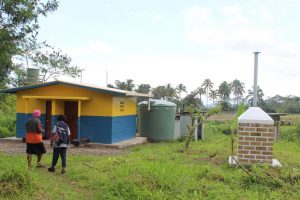
School Principal Sebastine Dubaba said since the inception of the EU-UNICEF WASH project, the WASH team from World Vision have been carrying out awareness to the school on menstrual hygiene management.
“The WASH team provided workshops for teachers to help them understand the importance of hygiene. “
“Following this, school health clubs were formed by students and a teacher appointed to carry out awareness programs among the student body and also having rosters to clean the ablution blocks”
“The appointed teacher also helps female students when they go through their menstruation and this has seen a drastic change in the attendance of the female students unlike the past” Mr Dubaba said.
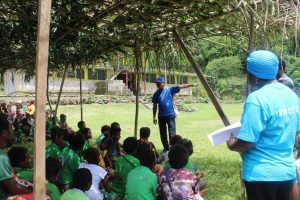
Furthermore, Ms Mikasimo added that ongoing menstrual hygiene promotion is vital especially providing of resource materials for students at school club to be read both by boys and girls to understand.
She said through the WASH project; “girls and female teachers now have menstrual hygiene management facilities where they can manage their life with dignity at school,”
“Learning is improved and reduction in absenteeism, schools now have safe toilets with doors to provide adequate privacy for women and girls at home and both girls and boys can openly discuss and building confidence to the girls at least” She said.
